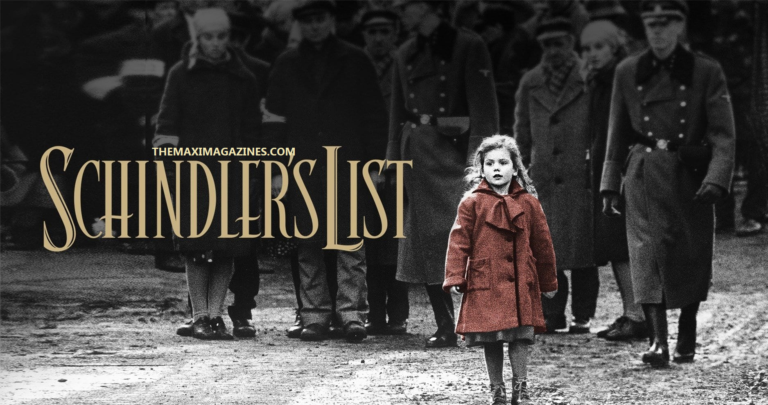How Schindler List Explores Defensiveness and Lack of Empathy, directed through Steven Spielberg, is a film that not only recounts the horrors of the Holocaust but delves into human psychology. One of its middle topics is the exploration of defensiveness and the dearth of empathy in a time of first rate suffering.
Defensiveness in Oskar Schindler
Oskar Schindler, the protagonist, starts his adventure as a businessman who appears detached from the ethical implications of Nazi atrocities. His preliminary defensiveness is pushed by means of self-interest and survival in a society that promotes cruelty. Schindler’s transformation from detached to empathetic shows the slow breaking down of his defenses. Through this character arc, Spielberg emphasizes how defensiveness can blind people to the suffering round them.
Amon Goeth
The individual of Amon Goeth, a ruthless Nazi officer, illustrates the acute lack of empathy. Goeth is depicted as a person who is absolutely detached to the pain and struggling of others, treating human existence as disposable. His moves at some point of the film show how a lack of empathy can cause unspeakable violence. Goeth’s character demonstrates that unchecked energy, mixed with a loss of empathy, creates an environment in which atrocities can thrive.
Survival Instinct and Moral Defensiveness
Survival instincts play a vital position in shaping defensiveness amongst individuals in Schindler’s List. Many Jewish characters are forced into morally compromising situations certainly to live to tell the tale. This defensiveness manifests as self-protection, main a few characters to make difficult picks, together with collaborating with their oppressors. Spielberg captures this painful reality, displaying how defensiveness can warp one’s moral compass.
Indifference and Collective Lack of Empathy
One of the movie’s most harrowing themes is the collective loss of empathy from German society. The folks who stand through and allow the Holocaust to unfold are portrayed as indifferent, focusing on their own protection and luxury as opposed to the struggling of others. Spielberg’s portrayal of this indifference serves as a effective reminder of the dangers of apathy inside the face of injustice.
Moments of Empathy
As the tale progresses, Schindler starts to show genuine empathy for the Jewish employees he first of all exploited. His awareness of the horrors around him breaks through his preliminary defensiveness, leading him to threat his lifestyles and wealth to store over 1,000 Jews. This shift is principal to the film’s message—that empathy can destroy through even the toughest defenses.
The Role of Guilt in Breaking Defensiveness
Guilt performs a enormous function in breaking down Schindler’s defensiveness. As he witnesses the mass extermination of Jews, his guilt becomes overwhelming. Spielberg uses this to illustrate that guilt, while stated, may be a powerful motivator for alternate. Schindler’s growing guilt leads him to do so, showing how inner ethical struggles can spark empathy.
Contrasting Empathy and Lack of Empathy
The movie regularly contrasts Schindler’s developing empathy with Goeth’s complete loss of it. While Schindler steadily turns into greater aware about the humanity of his employees, Goeth stays entrenched in his cruelty. This assessment serves as a effective narrative tool, highlighting the significance of empathy in overcoming defensiveness.
Schindler’s Breakdown
Toward the cease of the film, Schindler has a breakdown, beaten by way of guilt and empathy. He laments that he may want to have stored more lives. This emotional outburst marks the very last fall apart of his defenses, showcasing the deep effect that empathy may have on a person who has spent years protective themselves from the suffering of others.
Empathy as a Tool for Resistance
Empathy in Schindler’s List isn’t always only a personal transformation but also a device of resistance. By showing compassion for the Jewish workers, Schindler actively defies the Nazi regime. Spielberg affords empathy as a radical act inside the face of oppressive structures, reinforcing its power to disrupt even the maximum brutal environments.
Conclusion
How Schindler List Explores Defensiveness and Lack of Empathy leaves the target market reflecting at the dangers of defensiveness and the profound significance of empathy. The movie shows that whilst defensiveness can lead to moral blindness, empathy has the ability to create change, even inside the darkest times. Spielberg’s masterpiece is a powerful reminder of the human potential for both cruelty and compassion.
FAQs
How does Schindler’s List portray defensiveness?
The movie indicates defensiveness commonly through Schindler’s preliminary detachment and survival instinct, which blinds him to the struggling round him until he regularly becomes empathetic.
What is the significance of empathy inside the film?
Empathy is crucial to Schindler’s transformation and is depicted as a effective pressure for ethical exchange and resistance in opposition to evil.
How does Amon Goeth’s character constitute a lack of empathy?
Goeth’s complete dismiss for human life demonstrates the intense effects of a loss of empathy, highlighting the negative electricity of indifference and cruelty.
What role does guilt play inside the film?
Guilt is a key motivator for Schindler’s moves. It enables to interrupt down his defenses and push him in the direction of empathy and ethical obligation.
How does the movie comparison empathy and indifference?
The film contrasts Schindler’s developing empathy with Goeth’s indifference, the usage of their characters to discover the moral implications of both.


